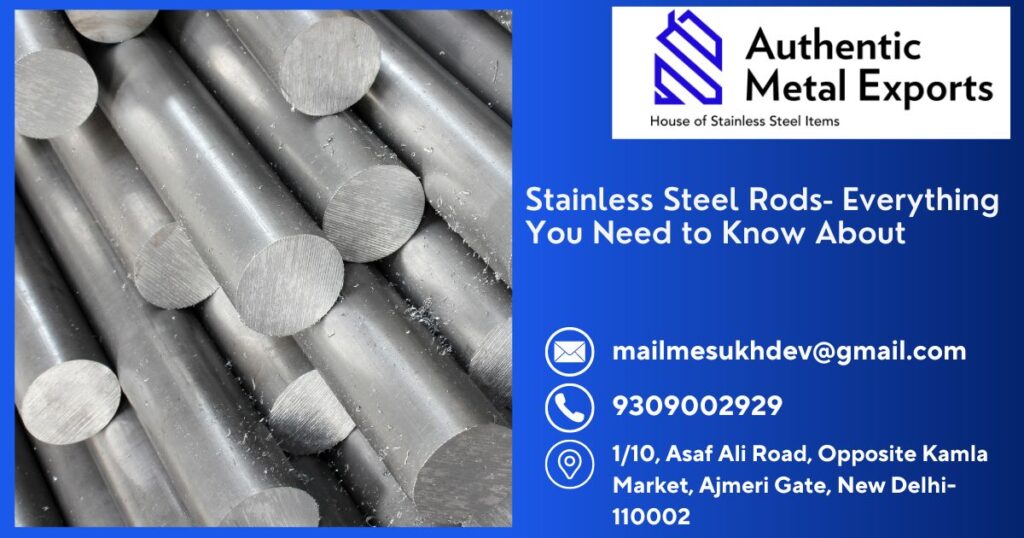Stainless steel has become an indispensable material in the food industry, revolutionizing food processing, equipment manufacturing, and kitchen design. Its exceptional properties make it an ideal choice for various applications, ensuring food safety, hygiene, and durability
In this article, we will explore the benefits of stainless steel in the food industry, its wide range of applications, compliance with food safety regulations, the different stainless steel grades suitable for food contact, as well as the challenges and limitations associated with its use.
Stainless steel’s non-porous surface and smooth finish make it highly resistant to bacterial growth, ensuring superior hygiene standards in food processing and handling.
Its easy-to-clean nature eliminates the risk of cross-contamination and facilitates thorough cleaning and sanitization processes, vital in maintaining a safe food production environment.
One of the most remarkable qualities of stainless steel is its resistance to corrosion.
This property protects food processing equipment, kitchen appliances, and other surfaces from rust, pitting, and staining caused by contact with moisture, acids, and salts present in food products.
By preventing corrosion, stainless steel maintains its integrity, ensuring food safety and prolonging the lifespan of equipment.
Stainless steel is renowned for its strength and durability, making it suitable for heavy-duty food processing operations.
Its resistance to impact and high load-bearing capacity enable it to withstand the demands of industrial environments, ensuring reliable and long-lasting performance.
The ability of stainless steel to withstand extreme temperatures and resist chemical reactions makes it highly suitable for the food industry.
Whether it’s exposure to high heat during cooking processes or contact with acidic ingredients, stainless steel maintains its structural integrity, ensuring safe and consistent food production.
The low-maintenance nature of stainless steel is another advantage in the food industry. Its smooth surface allows for easy removal of food residues, reducing the risk of contamination.
Stainless steel’s resistance to staining and discoloration simplifies the cleaning process, resulting in improved efficiency and reduced downtime.
Apart from its functional benefits, stainless steel also enhances the visual appeal of food service environments. Its sleek and modern appearance creates an impression of cleanliness and professionalism.
Stainless steel surfaces and equipment contribute to an aesthetically pleasing atmosphere, which is essential for customer satisfaction and maintaining high hygiene standards.
Stainless steel is extensively used in food processing equipment due to its exceptional properties. From mixers and blenders to tanks and conveyors, stainless steel ensures the hygienic processing, handling, and storage of food products.
Its smooth and seamless construction prevents the accumulation of bacteria, facilitating easy cleaning and minimizing contamination risks.
In commercial kitchens, stainless steel is the preferred material for appliances like refrigerators, ovens, grills, and workstations
The durability and corrosion resistance of stainless steel allow these appliances to withstand heavy use, heat, and exposure to various food substances without compromising safety or performance.
Stainless steel plays a vital role in food storage and transportation. It is commonly used in the construction of containers, drums, and transportation tanks.
Stainless steel’s resistance to corrosion and chemical reactivity ensures the preservation and integrity of food products during storage and distribution, safeguarding their quality and safety.
Countertops and work surfaces in food service establishments demand durability, resistance to staining, and ease of cleaning.
Stainless steel meets these requirements, making it an ideal choice for food preparation areas, buffet stations, and serving counters. Its robustness and hygiene properties enable efficient food handling and contribute to a clean and inviting environment.
Stainless steel plays a role in food packaging as well. Stainless steel containers and trays are commonly used in commercial kitchens, catering services, and food delivery. They offer a reliable and reusable solution for food storage, ensuring hygiene and minimizing waste.
Different stainless steel grades are suitable for contact with food, ensuring compliance with food safety requirements. The most common stainless steel grades used in the food industry include:
Combines the properties of austenitic and ferritic stainless steel, offering enhanced strength and corrosion resistance. It finds applications in food processing and storage equipment.
While stainless steel offers numerous advantages in the food industry, it is important to consider some challenges and limitations associated with its use.
Stainless steel equipment and infrastructure can have higher upfront costs compared to alternative materials. However, considering its durability, longevity, and compliance with food safety regulations, stainless steel often proves to be a cost-effective investment in the long run.
Stainless steel surfaces can be susceptible to scratches and dents, which may affect their appearance and create potential areas for bacterial growth. Regular maintenance and proper handling can mitigate this issue and ensure the longevity of stainless steel equipment.
Stainless steel has relatively high thermal conductivity, which means it can transfer heat quickly. While this property can be beneficial in certain food processing applications, it requires careful consideration when designing equipment to prevent heat loss or potential burns.
Although stainless steel is highly resistant to corrosion and staining, it can still be affected by certain chemicals or harsh cleaning agents. Proper selection of cleaning agents and adherence to recommended cleaning practices are necessary to avoid any contamination risks.
Stainless steel has revolutionized the food industry by providing a reliable and versatile material for a wide range of applications.
Its exceptional properties, including hygiene, corrosion resistance, strength, and durability, make it an ideal choice for food processing equipment, commercial kitchen appliances, storage and transportation containers, and food service surfaces. By complying with food safety regulations and offering various stainless steel grades suitable for food contact, stainless steel ensures the integrity and safety of food products.






